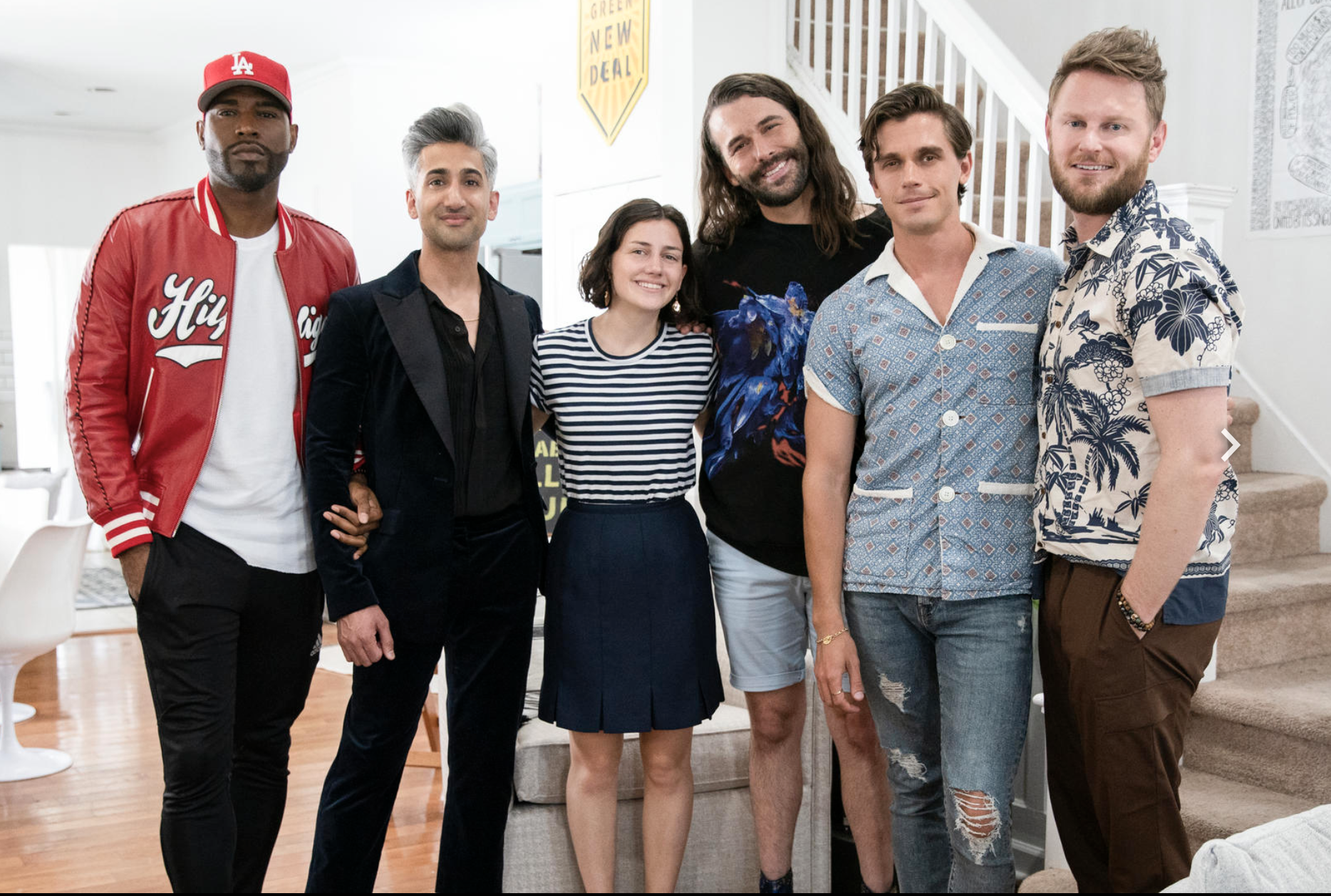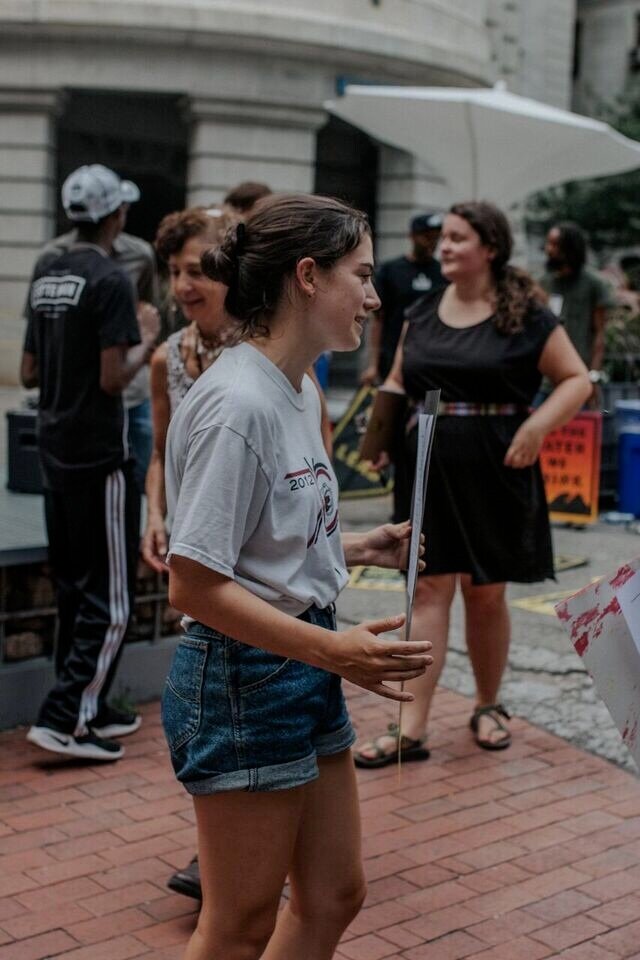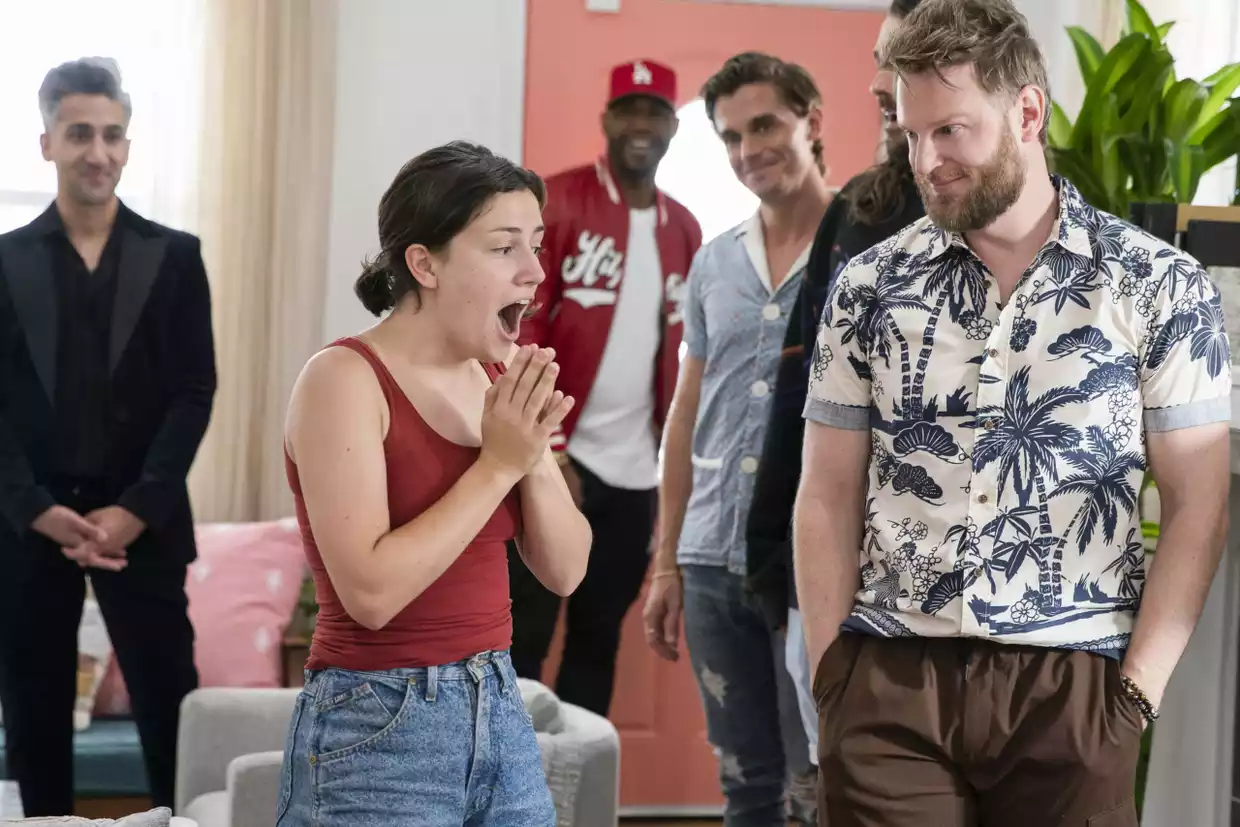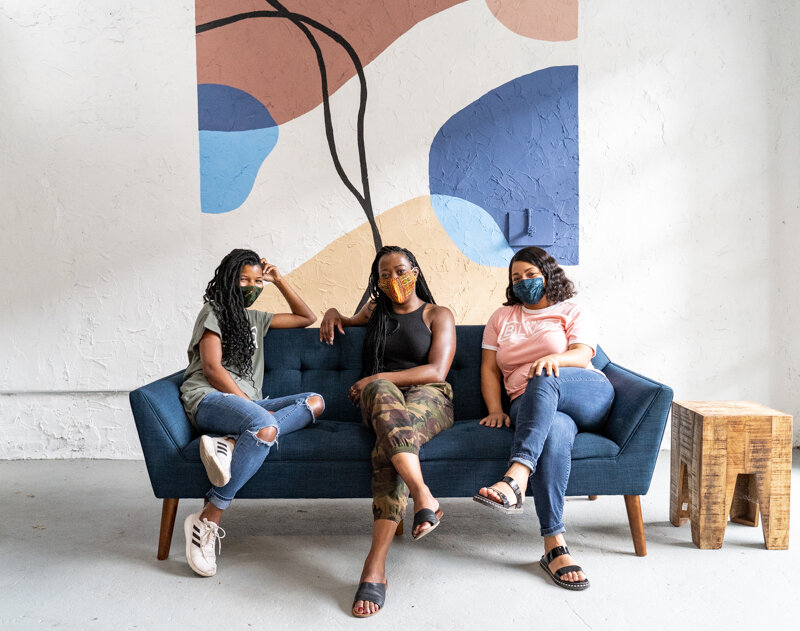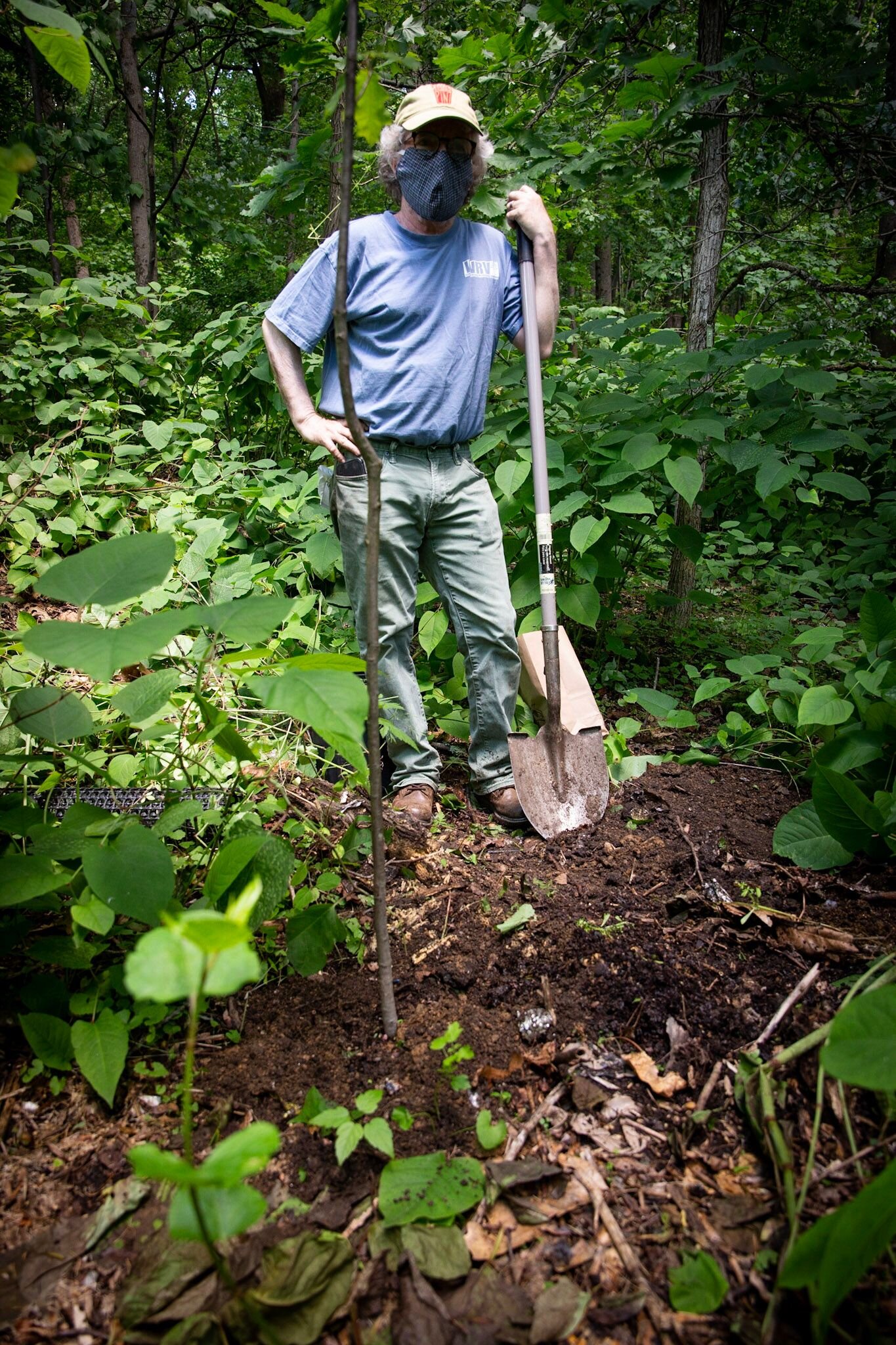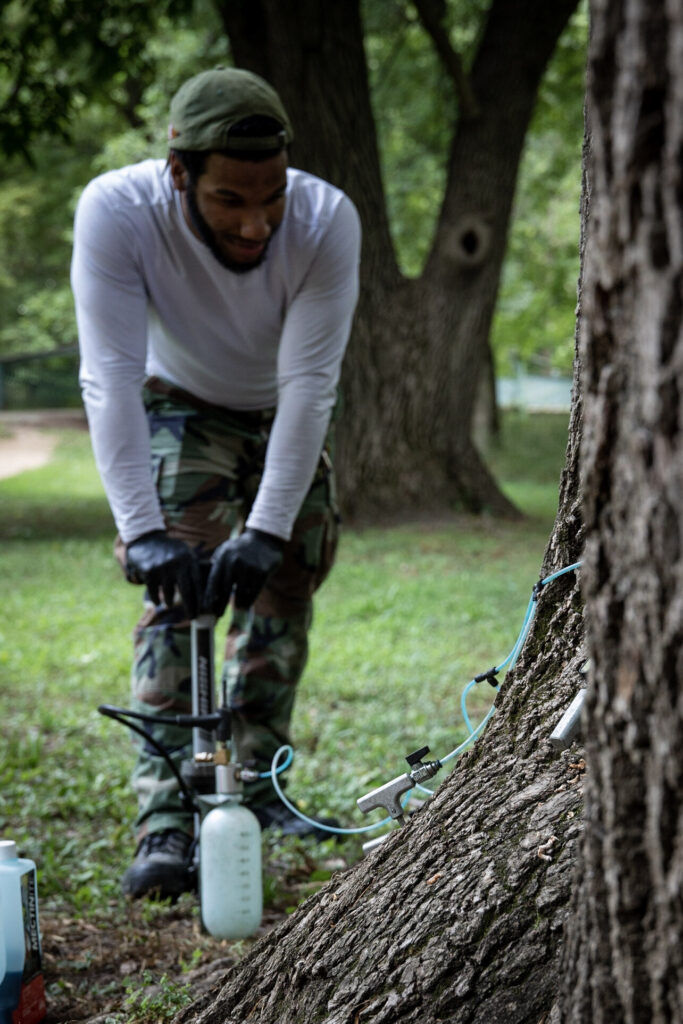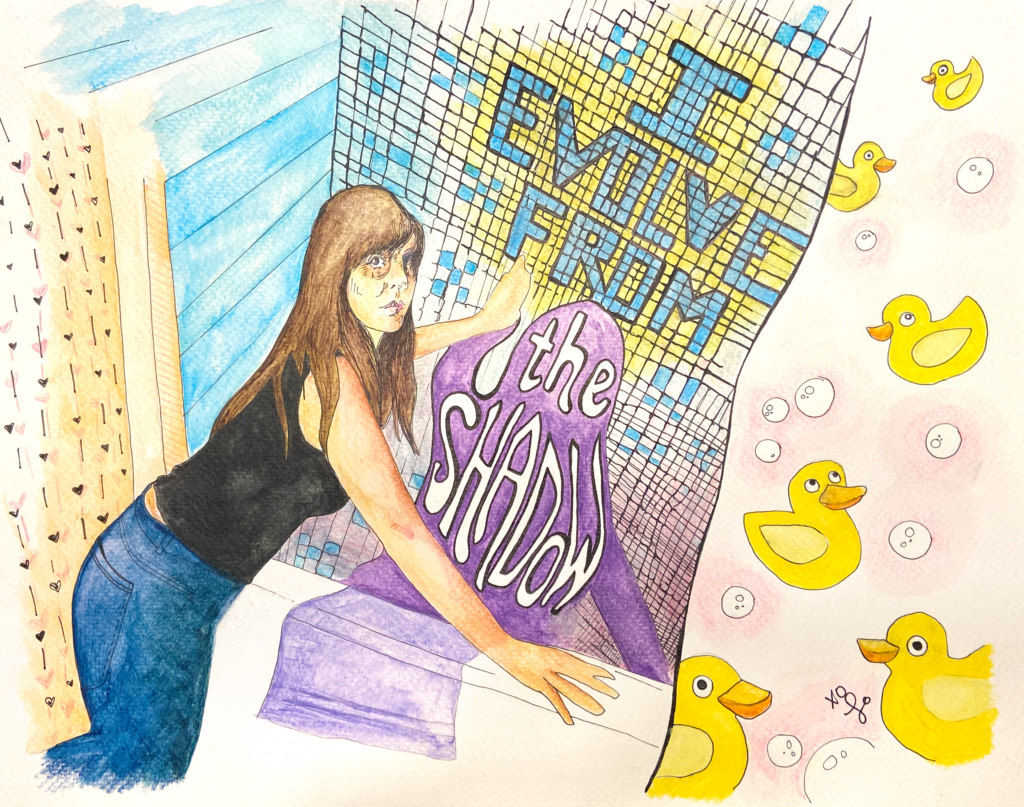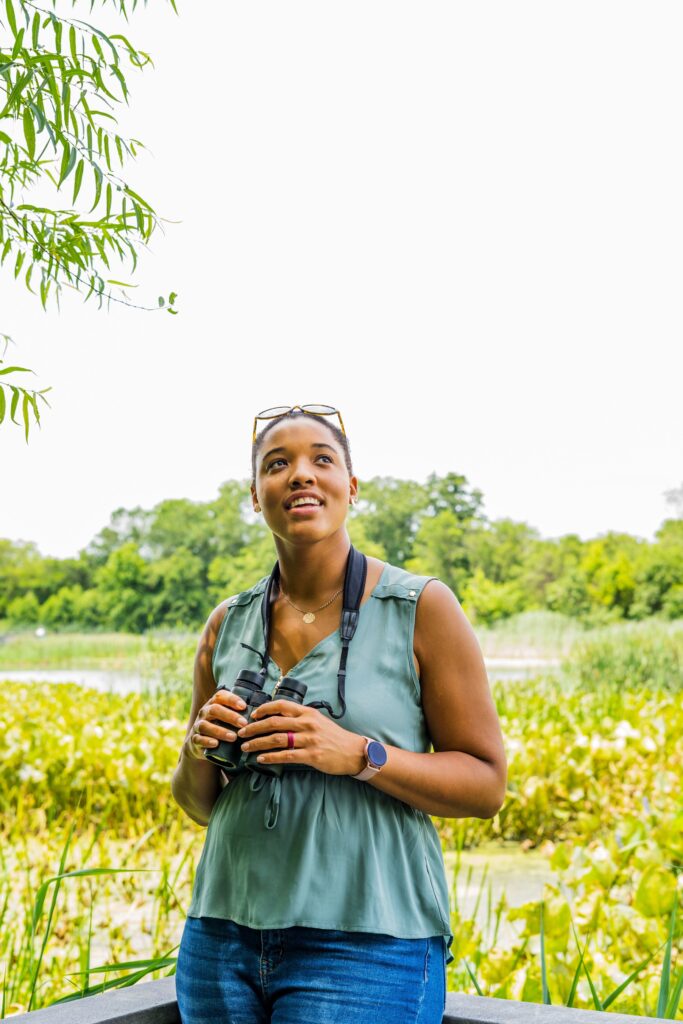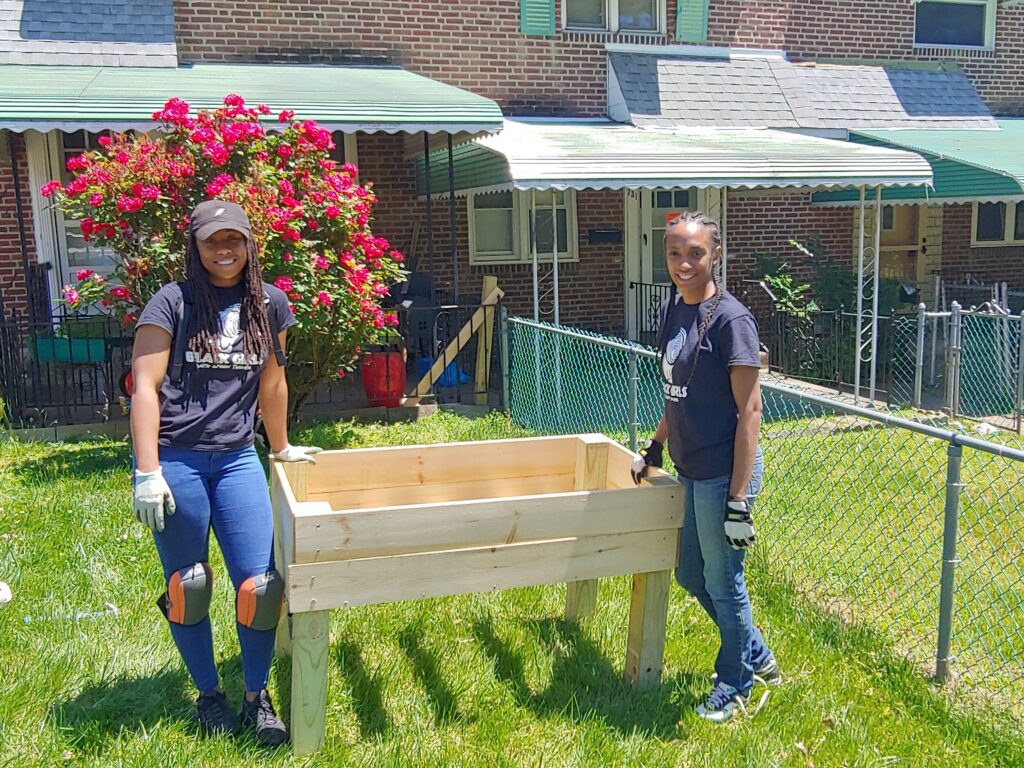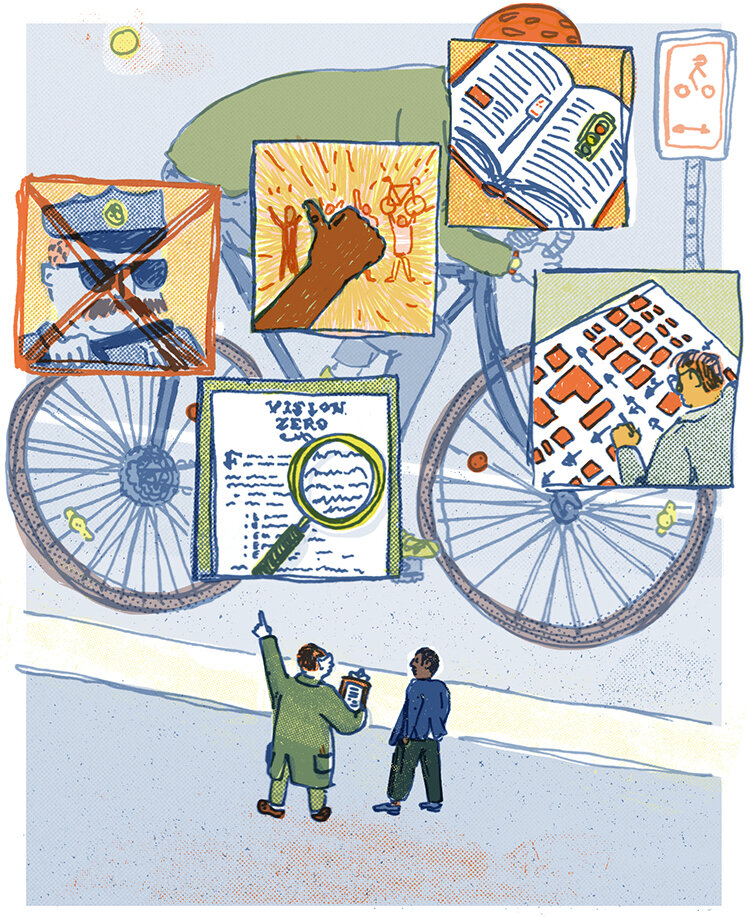Photograph courtesy of Netflix
By Francesca Furey
If you’ve been binging Netflix shows while social distancing at home, you might’ve come across Queer Eye’s 5th season — based right here in Philadelphia. The Fab Five spruced up the lives of 10 inspiring Philadelphians, including 19-year-old Abby Leedy, a staff organizer at the Sunrise Movement. The “Anxious Activist” works tirelessly to engage youth, speak out against corporations and politicians, and fight for a Green New Deal.
Queer Eye hosts Antoni Porowski, Tan France, Karamo Brown, Bobby Berk and Jonathan Van Ness teamed up with Leedy last summer for a week of self-care, and sustainability awareness. Throughout Philadelphia, Leedy was shown the ropes of cheap, vegan cooking, expressing one’s personal and professional personality through fashion, and picking through Philly’s thrift stores for vintage furniture for the Sunrise Movement’s group house.
Since the episode aired, the Sunrise Movement has seen an increase in social media exposure and chapter development across the country. Despite the pandemic the group is continuing to work toward a Green New Deal and collaborate with Black organizations in support of Black Lives Matter.
Below, Leedy spoke with Grid about youth activism, her experiences with the Fab Five, and what’s next for Sunrise.
This Q&A has been edited for style, clarity and length.
Tell me about yourself. Who is Abby? Why are you where you are today?
I’m Abby! I’m 19 and I am an organizer for the Sunrise Movement. I am a staff organizer with our national organization but some of the most important work I do is volunteer with the Philly chapter.
I am where I am today because Sunrise came to my environmental science class my junior year of high school and I gave them my phone number. They called me a million times and I finally agreed to go to a meeting. It was the first time I became really aware of all the ways that the world is really, deeply f****d up. It was also the first time I heard people, especially young people, propose big plans.
Sunrise was the first place where I found young people suggesting solutions at that scale and also saying this isn’t a pipe dream, things could be radically different.
What is the Sunrise Movement? Why did you get involved?
We’re a movement of young people fighting to stop climate change and create millions of good jobs in the process. But I think the core of our movement is young people fighting for a Green New Deal in the United States, which is a governing agenda that says we can stop the worst effects of climate change and we can become a country that’s carbon neutral, and net-zero greenhouse emissions by the 2030s.
We can do this by deeply investing in communities that have been most harmed by climate change and by environmental racism, like working class communities, communities of color, and rural communities — places like the Nicetown neighborhood of Philadelphia which has been polluted for decades because it’s a poor Black neighborhood that politicians don’t care to protect. The Green New Deal will protect communities from that happening again and we’re also going to repair the damage that has already been done.
A lot of organizations have a mixed bag of participants. Why is it important to have a coalition of youth?
Photograph courtesy of Iman Acharya
Young people have the most to lose from the current climate crisis. We are the people who are going to have to deal with the effects of really terrible decisions made by those older than us in power — and we have a lot of moral authority to say we’re the ones getting f****d over here.
I think it’s important to give young people a voice in the way that other groups often don’t. Truth is, when you’re in a space that’s mostly 40- and 50-year olds, people just don’t take you seriously. Sunrise is a place where young people, like 10 or 14 year olds, or those like me at 19, can share their ideas and their contributions are really taken seriously.
You were featured on Queer Eye. Tell me about your experiences. How was your week with the Fab 5? What did you learn that you didn’t expect?
Being on Queer Eye was great — it was my vacation week. I got a week off work to do it, so it was really relaxing straight off the bat.
The guys were incredibly nice and really kind. They really cared about me but also helped me in a way that would help the movement, which was really special. They were especially into sustainability. You can kind of tell in the episode that we had some disagreements about what it really means to be quote unquote sustainable. In the beginning of the episode, they said, “Abby, we biked here!” and I responded, “Oh, don’t worry, you can drive. It’s really not a big deal, you driving isn’t actually the problem.” That came up a few times and I was really excited that they were so willing to learn and reconsider their beliefs and work with me.
The space they created at the house was helpful and really nice for everybody in Sunrise to have. It was well-used and well-loved for the time we had. It made living there and having guests a lot easier — it was really impactful.
The episode shows you as a fellow living and working with others in a Sunrise house in Philly. How did that work?
I think that the fellowship houses were very powerful and also really hard. It’s hard because you live where you work and only with the people that you work with—we actually discontinued them in the winter because of that.
All of the people who were fellows became staff members with paid salaries instead of stipends. A lot of us decided to continue to live with Sunrise people, but the organization also invested in a physical office, so we didn’t have to work from our houses. Movement houses are an expression of intentional communities that’s part of all of the organizing Sunrise does and that has continued even after some of us don’t live together.
I think that one of the most important things about movement houses is that they’re part of forming a really intentional community of people who work together that also cared about each other as friends.
Antoni says in the episode, “Youth were given a world that’s on fire and are now trying to save it.” Does this ring true to you? And if so, why do you think that youth feel as if everything is on their shoulders?
I was born in 2001. I think we’ve been at war the entire time I’ve been alive. It’s not just that we’re at war in Iraq and Afghanistan — we’re also at war with oil and the profit of American companies.
I experienced the recession in 2008 and I saw my parents might not be able to sell and buy a house. The minimum wage hasn’t increased significantly during the time I’ve been alive. The cost of college has skyrocketed. One of the reasons I started working for Sunrise instead of going to college is that even though my mom has a really good job, I couldn’t afford to go without taking on massive amounts of student debt. We young people have massive amounts of student loans and can’t afford health insurance and I think it’s a generational thing because older people, like middle aged and older Democrats, are still not broadly supportive of the kind of policies that would make our lives any better. Young people, like Gen Z, are the ones pushing for a country that actually works for all of us and not just the upper class.
I think the people in power, who are mostly older, mostly white, and mostly born into rich families, do not care about making the lives of rural people, working-class people or Black and Brown people any better unless they can do so without jeopardizing their own power.
“A part of showing up as your best self is taking breaks and not pushing yourself to burnout. “
The overall goal of the Fab 5 was to help you lose pressure and anxiety, while still fighting for the planet. In fact, Philly Councilwoman Helen Gym said that one has to be free in order for a movement to shine even brighter. Why take time for yourself? Why do you think it’s important to be less anxious for activists?
Obviously, as documented on Queer Eye, I had to learn the hard way.
What it comes down to for me is that I know that creating an America that works for all of us is going to be the work of my entire life. A “perfect world” just isn’t going to happen and when you do what I was doing — work, work, work, work, work without ever taking a break — you burn out really fast.
Sunrise organizers and those at other organizing spaces do that, where they work to the point where their mental health has deteriorated and their physical health has deteriorated. They aren’t able to find joy in the work anymore and they leave. You go back to school or you find another job or you stop spending any of your time on organizing. What it comes down to is if we don’t take care of ourselves, if we don’t ask for help when we need it, if you don’t take breaks, we’re not going to be around to help the movement.
A part of showing up as your best self is taking breaks and not pushing yourself to burnout. Part of the mission of the Green New Deal is we all have well-paying, signified work without having to destroy our mental health. If we think that people should be able to live healthy, happy lives, then we should try to fix that for ourselves, too.
Photograph courtesy of Netflix
Have you continued any of those regimens or lessons they taught you?
Yeah, I put in a hard day off on my calendar. I found that taking entire days off every week works well for me. Setting artificial limits on my time during the week wasn’t really helping. I’ve been much better about taking time for that, plus saying no to evening calls so I spend more time with my friends and family.
I also started going to therapy in the winter; I stopped during COVID-19 because I didn’t want to do it on Zoom. Going to therapy for a couple months was helpful and I’m lucky that my insurance covers that.
With the Tan side of things, I’ve been trying to dress in ways that make me happy and trying to express myself a little more. Jonathan gave me enough skin product that I actually have not had to get some more since last August — they don’t show that in Queer Eye, just how much stuff they leave in your bathroom. It was a fully functional spa for many people.
Since your time at Queer Eye, has your voice grown as a mover and shaker?
The impact of the episodes coming out and hearing from all of these young people who saw it and were inspired or who joined or started Sunrise chapters has been incredible. The Queer Eye episode just existing has grown the movement, which is really special and exciting.
It’s hard to measure how much we’ve grown. There’s definitely been a huge uptick in traffic on our website and our social accounts, but it’s hard for us to figure out between our involvement in Black Lives Matter and the episode. There’s definitely been new people coming to the movement.
The pandemic has shaken our world, obviously. But one thing still is consistent amongst the chaos: global warming and the threat of climate change. What are Sunrise’s next steps? What are the short term and long term goals?
We’re still very much organizing for a vision of the Green New Deal.
Part of the Green New Deal has always been a deep commitment to racial justice and repairing the deep harms done by white supremacy in the U.S. Part of being able to fund the Green New Deal is diverting funds away from government programs that harm our communities like the fossil fuel industry and the police.
Most of our work right now is our partnership with the movements for Black lives and pushing to defund the police. Our hub has been working on local campaigns around that, and honestly, we’re not sure exactly what comes next.
If there’s one thing I’ve learned about 2020 it’s that we should stop making plans longer than a few weeks ahead of time. We’re gonna continue phone banking and advocating for progressive champions across the US and in Philly and hopefully turning out to vote for Biden in November.
Other than that, wherever the world takes us toward the Green New Deal.


